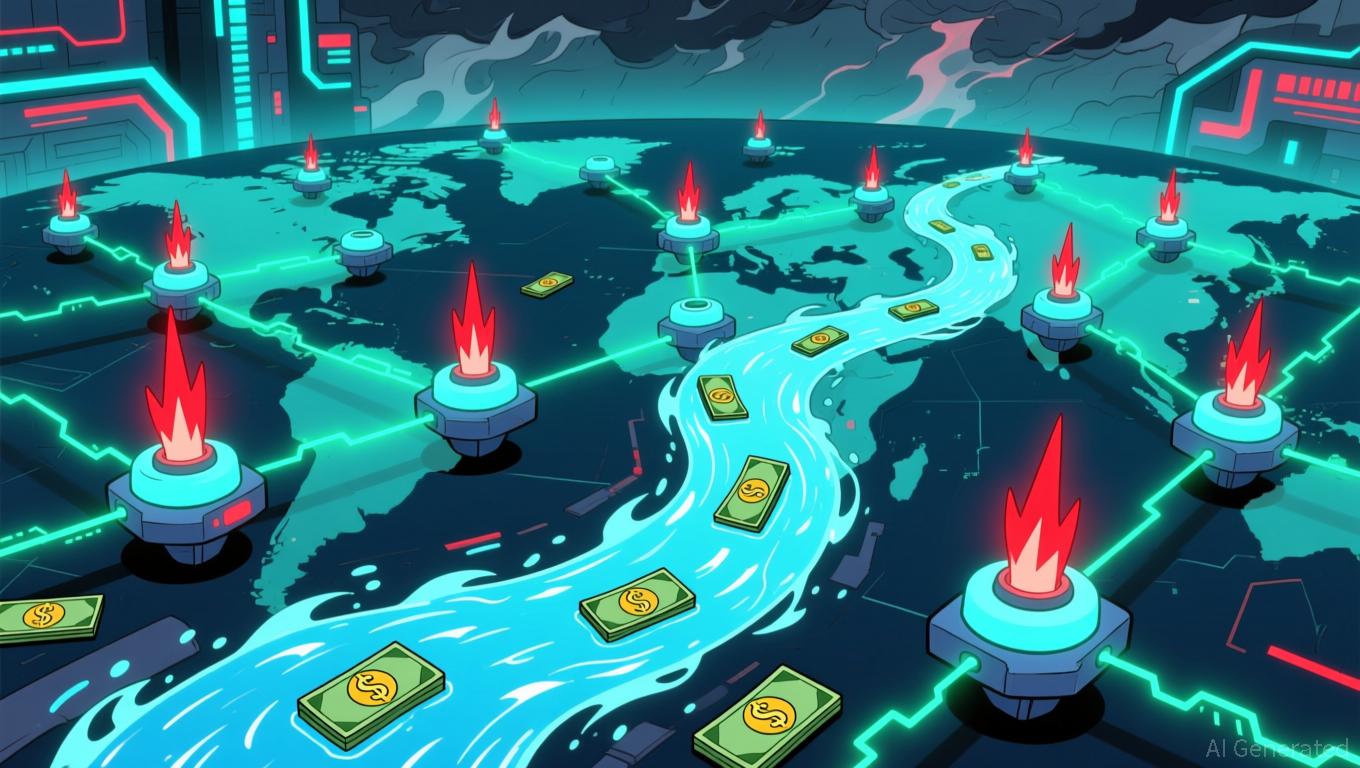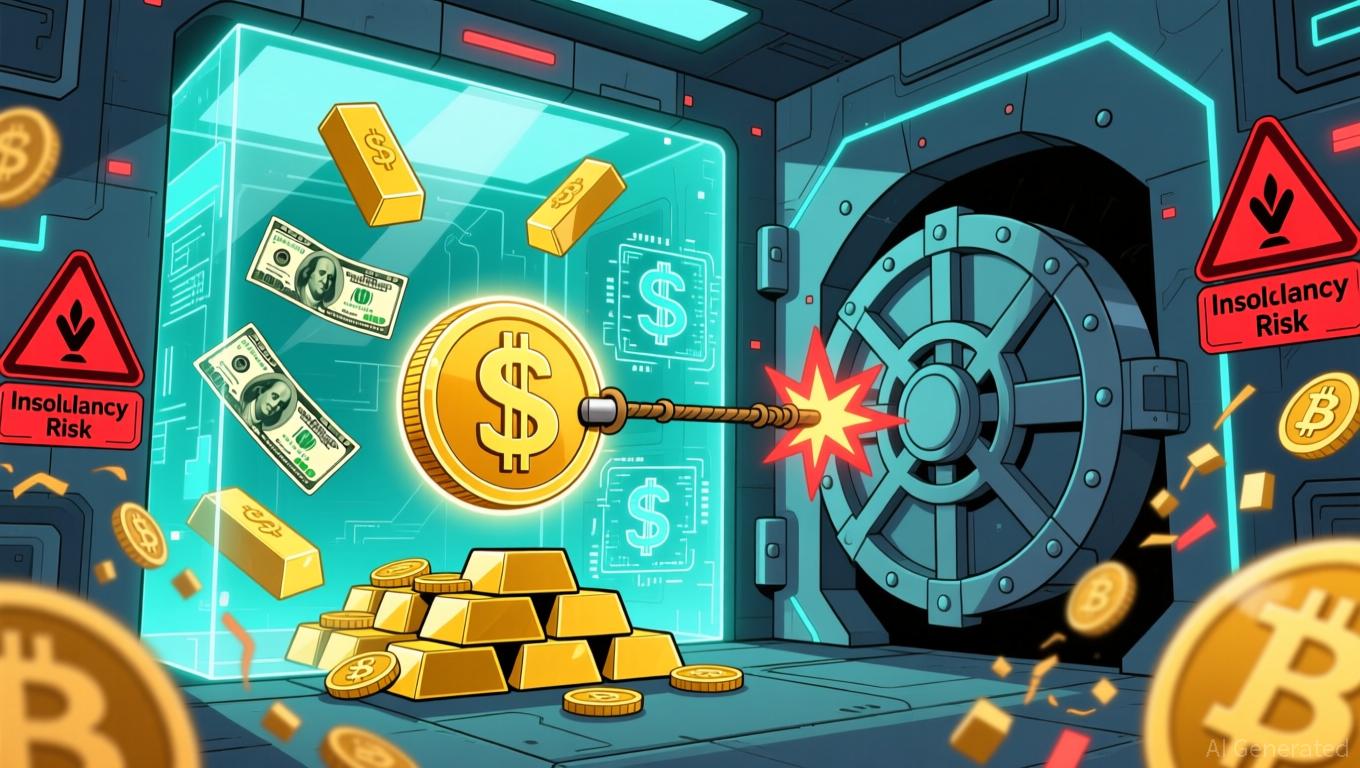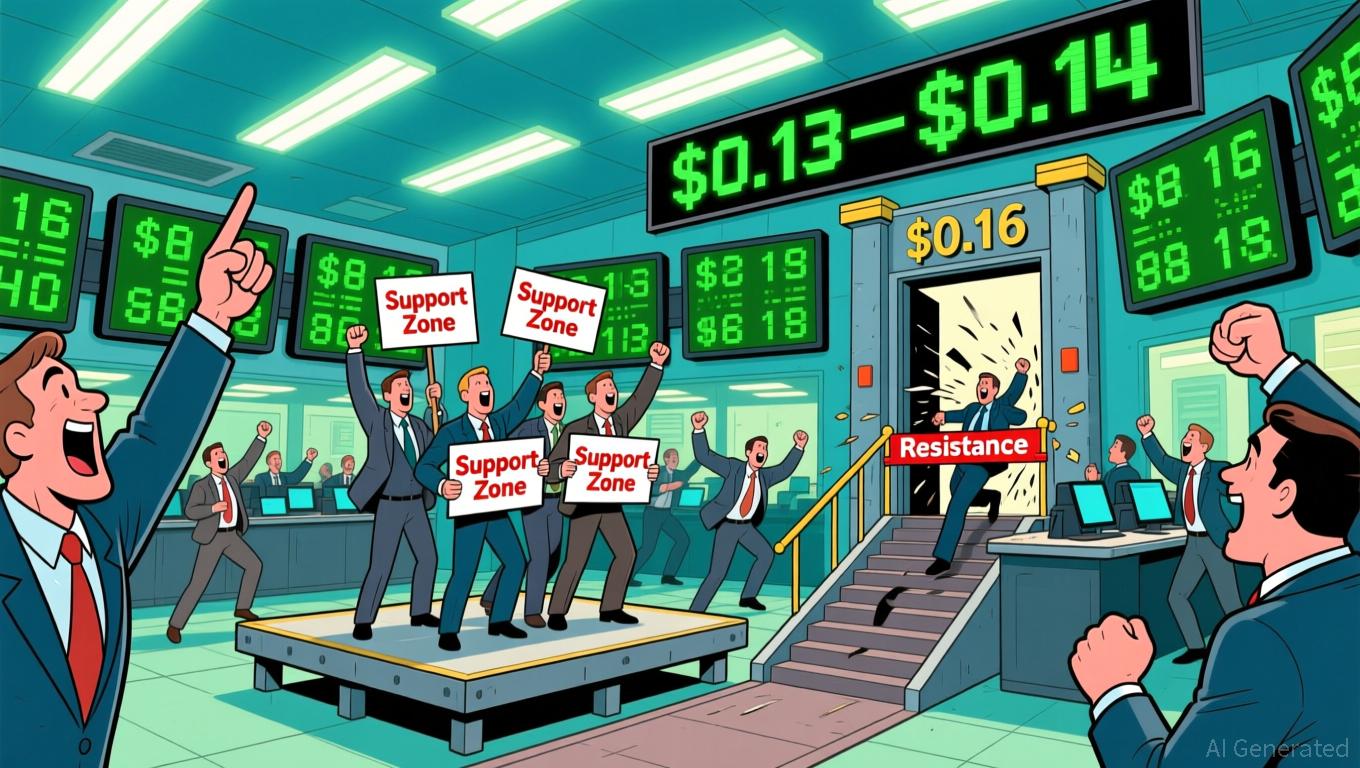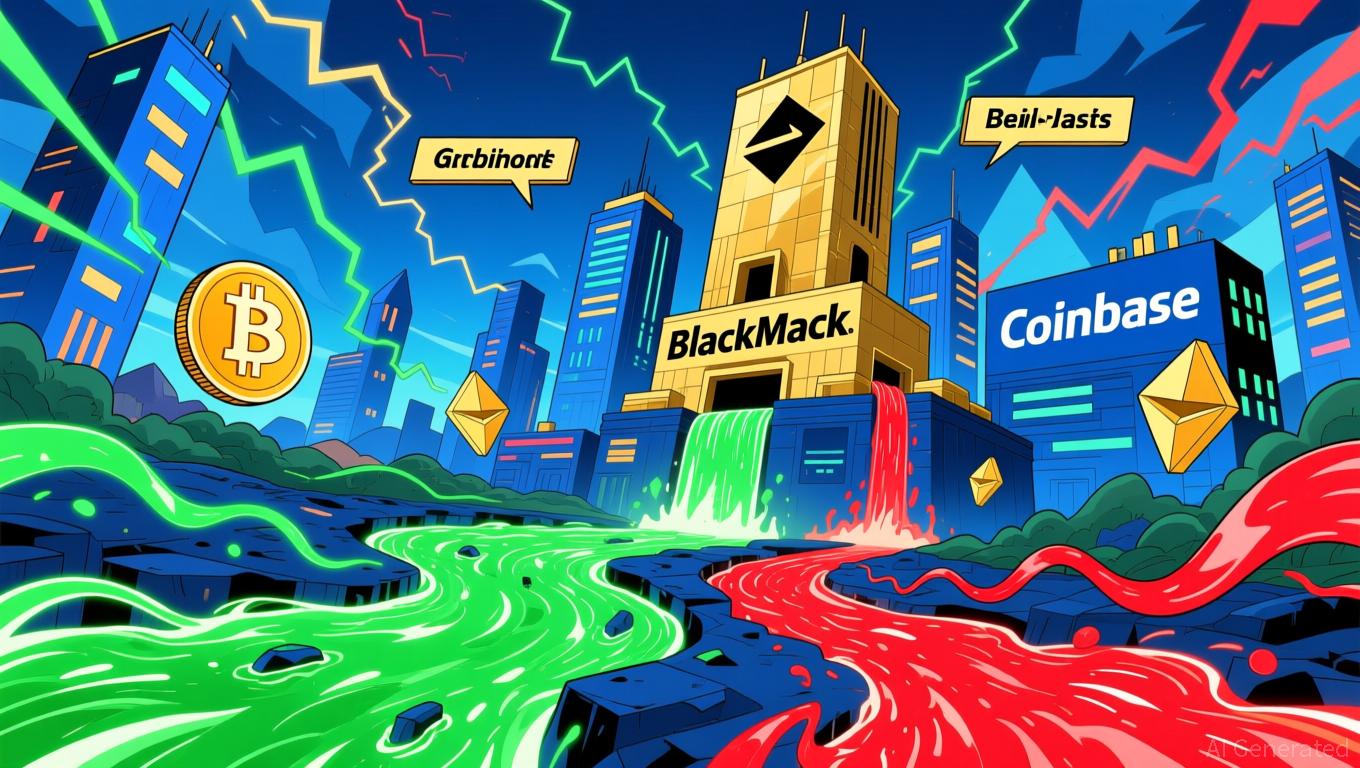XRP News Today: IMF Cautions That Rapid Tokenized Markets Could Intensify Crashes in the Absence of Regulation
- IMF warned tokenized markets like XRP could worsen flash crashes without regulation, citing risks from decentralized systems lacking traditional safeguards. - Report acknowledged tokenization's potential to cut cross-border payment costs but highlighted volatility risks from rapid liquidity loss seen in crypto markets. - SEC's approval of crypto ETFs signals growing institutional acceptance, though regulators emphasize oversight frameworks to mitigate systemic risks. - IMF proposed a global digital marke
IMF Raises Concerns Over Unregulated Tokenized Markets
The International Monetary Fund (IMF) has cautioned that while tokenized financial systems hold promise for improving cross-border payments, they could also intensify the risk of sudden market crashes if left without proper oversight. In its March 2023 report, "Fintech Note, Trust Bridges and Money Flows: A Digital Marketplace to Improve Cross-Border Payments," the IMF recognized the advantages of technologies such as XRP in making global transactions more efficient. However, the organization stressed that these innovations also introduce significant systemic risks.
According to the IMF, tokenized currencies like XRP can facilitate quicker and more affordable international transfers by eliminating the need for traditional credit-based arrangements. Yet, the lack of centralized regulation could make these markets more susceptible to extreme price fluctuations, especially during periods of instability.
Balancing Innovation and Financial Stability
The IMF's findings highlight a fundamental challenge in digital finance: fostering technological progress while maintaining market stability. Traditional cross-border payments depend on trusted relationships between banks, which often result in high fees and slow transactions. Tokenization offers a way to transfer ownership instantly on shared digital ledgers, but the IMF warns that these systems do not provide the same protections as established banking networks. For example, central bank swap lines—used to stabilize markets during crises—rely on political cooperation and trust, features that tokenized systems may not be able to replicate. This absence of safeguards could lead to more severe flash crashes, similar to those observed in cryptocurrency markets where liquidity can quickly disappear.

Regulatory Responses and Market Developments
Regulatory bodies are beginning to address these emerging risks. The U.S. Securities and Exchange Commission (SEC) has started approving or reviewing several exchange-traded funds (ETFs) linked to cryptocurrencies, signaling a gradual move toward mainstream acceptance. For instance, Grayscale Investments recently introduced the first U.S. spot Dogecoin (DOGE) ETF, though its initial trading volume was modest at $1.41 million. Meanwhile, applications for Chainlink (LINK) spot ETFs from Bitwise and Grayscale indicate that regulators are cautiously allowing tokenized assets into traditional markets, but with a strong emphasis on regulatory oversight. These actions reflect a broader effort to integrate digital assets into established financial systems while managing associated risks.
A Vision for a Global Digital Marketplace
To address these challenges, the IMF has proposed the creation of a global digital marketplace for tokenized money. This platform would enable assets like XRP to be exchanged internationally with greater efficiency, supported by market makers who would handle currency conversions and liquidity. The IMF does not endorse any specific token, instead presenting XRP, Stellar, and Bitcoin’s Lightning Network as examples of possible settlement mechanisms. This approach underscores the need for standardized governance and coordinated regulation to avoid fragmentation and systemic weaknesses.
Macroeconomic Influences and Future Outlook
Broader economic trends are also shaping the future of tokenized markets. For example, speculation about a potential interest rate cut by the Federal Reserve in December has already caused notable volatility in the cryptocurrency sector, with Bitcoin recovering after a sharp decline. These developments demonstrate how shifts in monetary policy can interact with digital asset markets, potentially amplifying risks if regulatory measures are insufficient. The IMF’s warning serves as a reminder that as governments and institutions become more involved with tokenized assets, the interplay between policy, market structure, and regulation will be crucial in ensuring the stability of next-generation payment systems.
Disclaimer: The content of this article solely reflects the author's opinion and does not represent the platform in any capacity. This article is not intended to serve as a reference for making investment decisions.
You may also like
Bitcoin News Update: S&P Rating Drop Highlights Tether’s Risky Asset Holdings and Lack of Transparency
- S&P downgrades Tether's USDT to "5 (weak)" due to high-risk reserves and transparency gaps. - Tether's 5.6% BTC exposure exceeds overcollateralization margins, risking undercollateralization if prices drop. - CEO dismisses critique as traditional finance bias, claiming no "toxic" assets in reserves. - Regulators intensify scrutiny as stablecoin centralization risks emerge amid $184B USDT circulation. - S&P urges Tether to reduce risky assets and enhance reserve disclosure to rebuild trust.

Dogecoin Latest Updates: Is a Repeat Performance on the Horizon? Holding $0.15 May Signal a 611% Rally for Dogecoin
- Dogecoin (DOGE) stabilized near $0.15 support, triggering historical 611% rally potential to $1 by 2026. - Grayscale's GDOG ETF and pending Bitwise BWOW ETF mark institutional adoption, though initial inflows remain muted. - Technical indicators show mixed momentum with RSI near oversold levels and key resistance at $0.16. - Market remains divided as ETF-driven liquidity and on-chain infrastructure contrast with macroeconomic and regulatory risks.

Turkmenistan’s Approach to Cryptocurrency: Centralized Oversight Amidst a Decentralized Age
- Turkmenistan legalizes crypto trading under strict 2026 regulations, granting state control over exchanges, mining , and custodial services. - Law mandates KYC/AML compliance, bans traditional banks from crypto services, and classifies digital assets into "backed" and "unbacked" categories. - Central bank gains authority to operate state-monitored distributed ledgers, contrasting with decentralized approaches in South Korea and Bhutan. - Framework aims to balance innovation with oversight, testing Turkme
Bitcoin News Update: Has $162 Billion Left Crypto Due to Institutional Buying or a Broader Market Pullback?
- BlackRock deposited 4,198 BTC and 43,237 ETH into Coinbase amid crypto sell-offs, despite $355.5M Bitcoin ETF outflows. - A 1.8M BTC ($162B) overnight exchange withdrawal sparks speculation about institutional accumulation or portfolio rebalancing. - $40B in BTC/ETH exchange inflows and record $51.1B Binance stablecoin reserves highlight institutional demand for regulated crypto products. - On-chain data shows 45% of large deposits (≥100 BTC) and 1.8M BTC withdrawals, indicating mixed market sentiment ah
